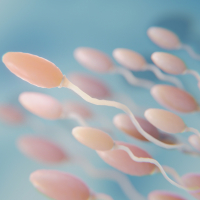
Review question
Do supplementary oral antioxidants compared with placebo, no treatment or another antioxidant improve fertility outcomes for subfertile men?
Background
A couple may be considered to have fertility problems if they have been trying to conceive for over a year with no success. Many subfertile men undergoing fertility treatment also take dietary supplements in the hope of improving their fertility. Fertility treatment can be a very stressful time for men and their partners. It is important that these couples have access to high-certainty evidence that will allow them to make informed decisions on whether to take a supplemental antioxidant. This is especially important as most antioxidant supplements are uncontrolled by regulation. This review aimed to assess whether supplements with oral antioxidants, taken by subfertile men, would increase the chances of a couple to achieve a (clinical) pregnancy confirmed by ultrasound and ultimately the birth of a baby (live birth). This review did not examine the use of antioxidants in men with normal sperm.
Study characteristics
Cochrane authors conducted a review including 90 randomised controlled trials comparing 18 different antioxidants with placebo, no treatment or another antioxidant in a total population of 10,303 subfertile men. The age range of the participants was 18 to 65 years; they were part of a couple who had been referred to a fertility clinic and some were undergoing fertility treatment. The evidence is current to February 2021.
Main results
Antioxidants may be associated with an increased live birth and clinical pregnancy rate. Based on the studied population for live birth, we would expect that out of 100 subfertile men not taking antioxidants, 16 couples would have a baby. In subfertile men taking antioxidants, between 17 and 27 per 100 couples would have a baby. If studies with high risk of bias were removed from the analysis, there was no evidence of increased live birth in the population taking antioxidants. In the people who were studied for clinical pregnancy, we would expect that out of 100 subfertile men not taking antioxidants, 15 couples would have a clinical pregnancy. In subfertile men taking antioxidants, between 20 and 30 per 100 couples would have a clinical pregnancy. Adverse events were poorly reported. Only six studies reported miscarriage. In these studies, miscarriage did not occur more often in the group using antioxidants when compared with the group with placebo or no treatment. However, there is insufficient evidence to draw conclusions about antioxidant use and the risk of miscarriage. The use of antioxidants may be associated with more mild stomach discomfort, with a frequency of 2% in subfertile men not taking antioxidants, and between 2% and 7% in men taking antioxidants. The oral supplements may cause discomforts such as nausea or stomach ache.
Authors' conclusion and certainty of the evidence
Antioxidant supplementation taken by subfertile males of a couple attending a fertility clinic may increase the chance of a live birth, however the overall certainty of evidence was very low from only 12 small to medium-sized randomised controlled trials. Low-certainty evidence suggests that clinical pregnancy rates may increase. Overall, there is no evidence of increased risk of miscarriage. Evidence of low certainty suggests that antioxidants may be associated with more gastrointestinal discomfort. Subfertile couples should be advised that overall the current evidence is inconclusive due to the poor reporting of methods, failure to report on live birth and clinical pregnancy rate, imprecision due to low event rates, high number of dropouts and small study group sizes. Large well-designed randomised placebo-controlled trials studying infertile men and reporting on pregnancy and live births are still required to clarify the exact role of antioxidants.

